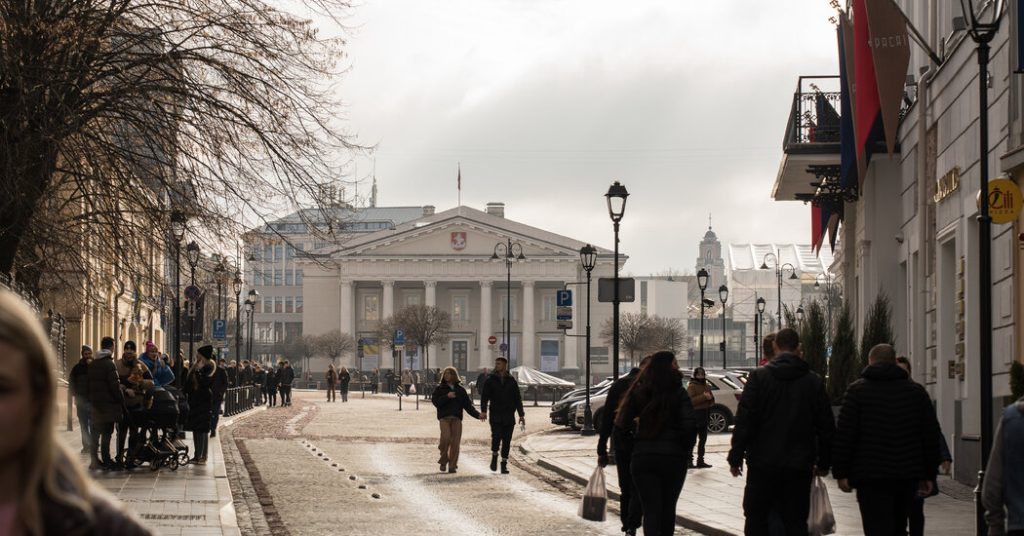The arrival of Russian activists and dissidents in Vilnius, Lithuania, highlights the city’s growing role as a center of Russian political opposition against President Vladimir V. Putin. The Lithuanian government has welcomed these dissidents who fled Russia after the invasion of Ukraine and has provided support for their efforts. The influx of Russian-speaking refugees and migrants from Belarus and Ukraine has reshaped Vilnius’s economy and culture, positioning Lithuania as an unexpected bastion of democracy in the region.
However, the presence of the Russian-speaking diaspora in Vilnius has raised concerns among some Lithuanians about the potential for Russification and the loss of their cultural identity. The memorial dedicated to Lithuanian victims of Soviet repression now serves as a tribute to Aleksei A. Navalny, further emphasizing the tension between preserving Lithuanian history and accommodating the growing Russian presence. Some fear that the widespread use of the Russian language and the influx of Russian migrants may erode Lithuania’s national identity and traditions.
The Russian exiles in Vilnius have formed a diverse community that includes journalists, activists, musicians, and political organizations working to challenge the Putin regime. Despite their varied backgrounds and experiences, many Russian exiles have found a sense of solidarity and support in Vilnius, where they can exchange ideas, collaborate on projects, and advocate for democracy in Russia. The city’s compact size and concentration of prominent Russian exiles have created a unique atmosphere that resembles scenes from literature and offers a refuge for those seeking political change.
The Russian opposition activists in Vilnius continue to face challenges, including concerns about the safety of their families remaining in Russia and uncertainty about the future of their political movement. The death of Aleksei Navalny, a prominent opposition figure, has added to their anxieties and raised questions about the effectiveness of their advocacy efforts. Despite these challenges, many exiled Russians remain dedicated to their cause and continue to seek ways to influence political change in Russia from afar.
Some Lithuanians have expressed skepticism about the influx of prominent Russians into their country, referring to them as “White Russians” and expressing concerns about potential cultural differences and the preservation of Lithuanian identity. The increase in Russian-language schools in Vilnius has sparked debates about education and integration, with officials expressing concerns about the impact of segregation and linguistic divisions on Lithuanian society. The continued focus of Russian exiles on their political struggle within Russia has left limited opportunities for deeper integration with their host country.
Looking ahead, the presence of Russian activists and dissidents in Vilnius poses both opportunities and challenges for Lithuania, as the city becomes a focal point for Russian opposition efforts and a symbol of resistance against authoritarian regimes. The relationship between the Russian-speaking diaspora and Lithuanian society will likely continue to evolve, shaping the cultural landscape and political dynamics of Vilnius in the years to come. As the exiled community navigates the complexities of life in a foreign land, their determination to advocate for democratic reforms in Russia remains steadfast, embodying a vision of a future Russia free from the constraints of Putin’s regime.


